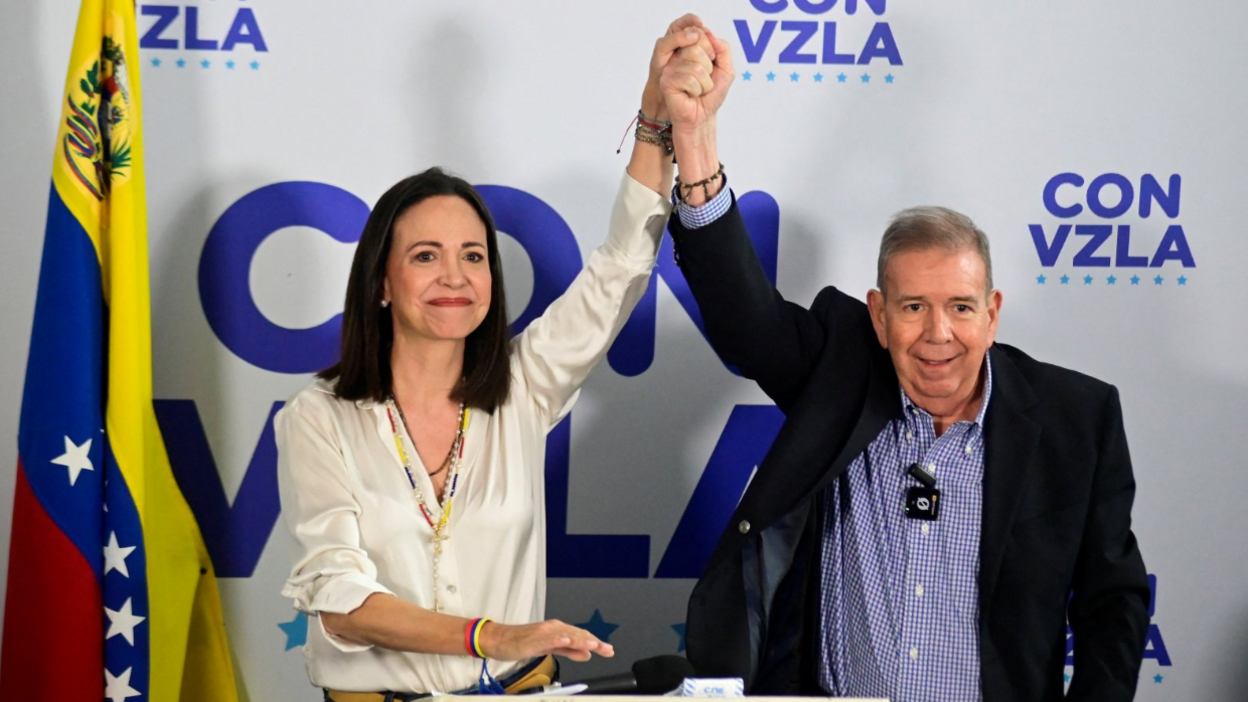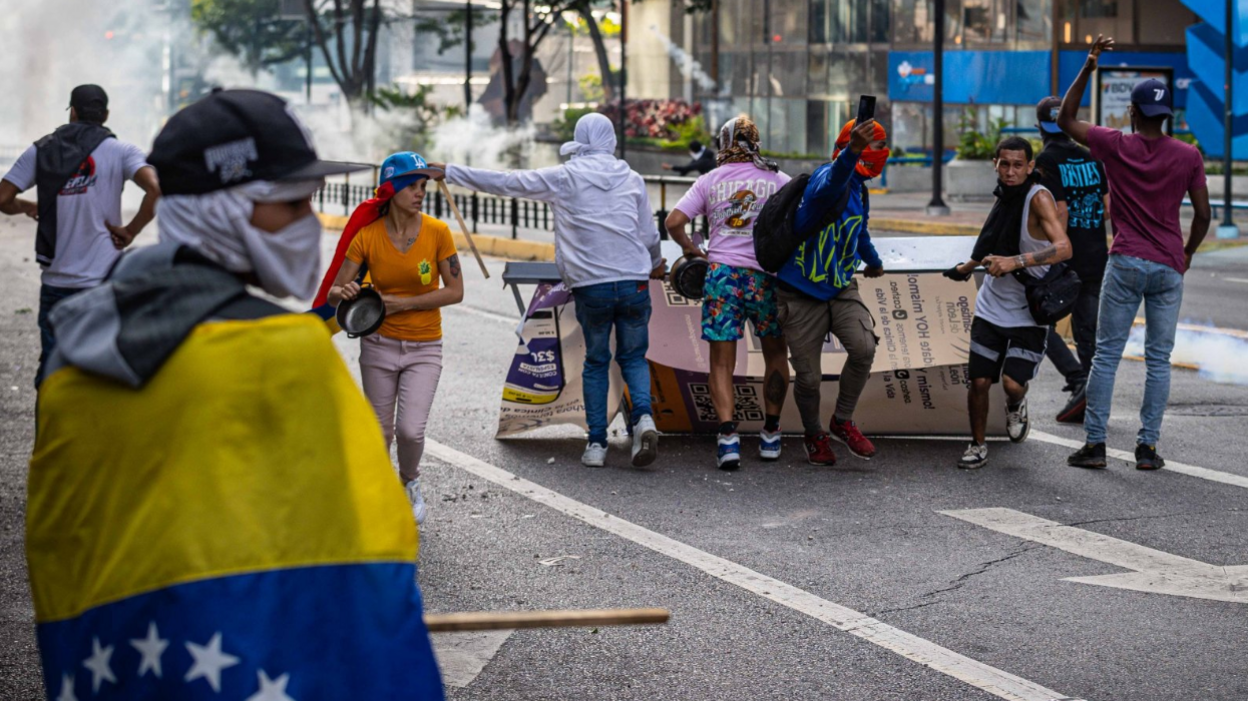Overwhelming evidence Venezuela opposition won election - Blinken

Opposition leader María Corina Machado claims her party's candidate, Edmundo Gonzalez, won by a landslide
- Published
The US secretary of state has said there was "overwhelming evidence" Venezuela's opposition won the recent presidential election.
In a statement Antony Blinken said it was clear Edmundo González, had won the most votes - despite incumbent president Nicolás Maduro declaring a disputed victory.
"Given the overwhelming evidence, it is clear to the United States and, most importantly, to the Venezuelan people that Edmundo González Urrutia won the most votes in Venezuela's 28 July presidential election," Mr Blinken said.
His intervention comes as the presidents of Brazil, Mexico and Colombia all called on Venezuela to release the full details of last Sunday's election.
The US State Department later said Mr Blinken had spoken to Mr González to congratulate him "for receiving the most votes".
In a call with Mr González and the opposition party's leader María Corina Machado, Mr Blinken "expressed his concern for their safety and well-being" and "condemned all political violence and repression".
On Friday, Venezuela's election authority ratified Mr Maduro's disputed victory - saying he had won about 52% of votes to Mr González's 43%, from 97% of votes counted.
Mr Maduro accused the opposition of producing fake evidence to contest the result of the election and said the US was behind what he described as a farce and a coup attempt.
In a media conference, he also blamed the opposition for spreading false information and encouraging violence in Venezuela.
Last Sunday, the electoral council, which is government-controlled, announced President Maduro had won the election for a third term.
But this was immediately disputed by the opposition who said, with access to the majority of receipts from electronic voting machines around the country, it was false.
The opposition has said its own vote tally shows it won the election by a wide margin. Opinion polls ahead of the election had suggested a clear victory for the challenger.
The announcement of Mr Maduro’s victory on Sunday set off deadly protests in Caracas.
It has also attracted global criticism, with many governments around the world demanding the Venezuelan government release proof of the result.

Riot police fired tear gas and rubber bullets at protesters in Caracas as thousands demonstrated against the outcome of Sunday's presidential poll
The result has been recognised by Venezuelan allies China, Russia and Iran.
But, the US, European Union and other G7 countries have called on Mr Maduro’s government to release detailed voting data.
Posting on social media, Mr Blinken said: "Electoral data overwhelmingly demonstrate the will of the Venezuelan people: democratic opposition candidate Edmundo González won the most votes in Sunday’s election.
"Venezuelans have voted, and their votes must count."
The intervention by Mr Blinken is significant. After the last election in 2018 was widely dismissed as neither free nor fair, countries including the US decided to recognise the then-opposition leader Juan Guaido as interim president and imposed sanctions on Venezuela.
Mr Blinken said it was "time for the Venezuelan parties to begin discussions on a respectful, peaceful transition in accordance with Venezuelan electoral law and the wishes of the Venezuelan people".
Argentine Foreign Minister Diana Mondino shared Mr Blinken's view, writing in a post on X, external, formerly Twitter: "We can all confirm, without a doubt, that the legitimate winner and President-elect is Edmundo González."
Ecuador, Uruguay, Costa Rica and Peru have also recognised Mr González as the president-elect.
However, the governments of Brazil, Colombia and Mexico called for an "impartial verification" of the result, urging Venezuela to publish voting data broken down by polling stations in a joint statement.
Opposition leader Ms Machado, who says she is in hiding, has called for mass demonstrations on Saturday.
Speaking to the Wall Street Journal, she said Mr Maduro did not win the election.
She claimed her party's candidate, Mr Gonzalez, won by a landslide and Ms Machado said she could prove this because she had receipts from more than 80% of polling stations.
Ms Machado appealed for help, saying it was now up to the international community to decide whether to tolerate what she called an illegitimate government.